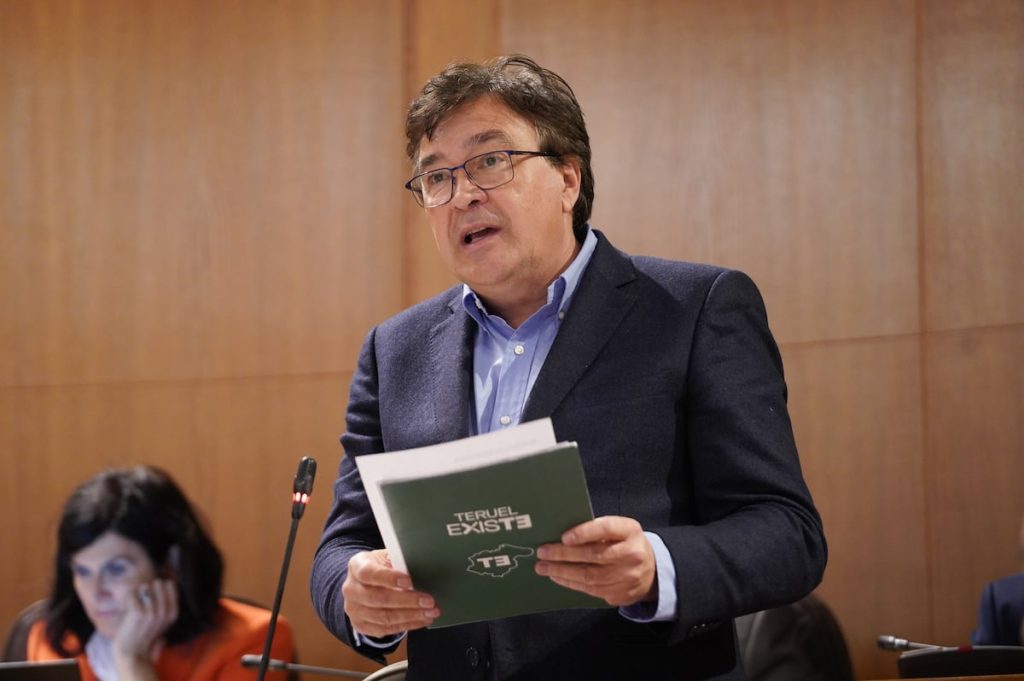Several representatives of the political parties in Spain’s Depopulated Areas have criticized in Madrid the comparisons made by the PSOE between financial aid for Teruel, Soria, and Cuenca as depopulated areas and the economic model negotiated with Catalonia. The parties have been lamenting these comparisons ever since the government spokesperson, socialist Pilar Alegría, stated a few days ago that the system contemplated for Catalans in the framework of support from ERC to Salvador Illa’s investiture (PSOE) is similar to the bonuses – of European instruction – proposed for the depopulated provinces. The former national deputy Tomás Guitarte, of Teruel Existe now in the Aragonese Parliament, has stated: “It would take 1,000 years for Teruel, Soria, and Cuenca to receive an equivalent bonus to what Catalonia will receive in one.” The spokespersons for Cuenca Ahora, Teruel Existe, and Soria ¡YA! have gathered on Thursday morning in front of the Congress of Deputies to denounce these unfortunate parallels from their point of view. Soriano Ángel Ceña, one of the three procurators of the grouping in the Castilla y León Cortes, has criticized this discourse: “It is a despicable action, if we are already tired of being ignored, it is only missing that we are used as an excuse to justify the unjustifiable, it seems the end.” Guitarte, a former ally of Pedro Sánchez in his Budgets or parliamentary decisions, has vented his frustration about the comparisons made by Esther Peña, spokesperson for the PSOE and also from Burgos, a province also struggling with demographic issues: “Since it is evident that it is not a confusion but part of an argument prepared in the party and government kitchens, we can only qualify the fact as a miserable, mean action that tries to justify the feast provided to the rich with the crust of bread given to the needy.” David Cardeñosa, from Cuenca Ahora, has stated that “the PSOE has no idea about the problems of our provinces.”
Guitarte has reproached the words of Minister of Education, Pilar Alegría, also government spokesperson and Aragonese, who “knows the problem perfectly well.” “Blind partisan defense and obedience prevail over verifiable evidence, and a tremendous rumor is launched, by those who denounced, until recently, the context of fake news, hoaxes, and media distortion,” he has argued. Alegría defended the measure agreed with ERC on the grounds that they have always worked taking “into account the singularities of all territories, in the case of Catalonia, but also in the Balearic and Canary Islands or these fiscal singularities for Teruel, Soria, and Cuenca.” According to Guitarte’s data, “the annual amount of operating subsidies for the three provinces is 25 million euros (6.25 for Soria, 8.25 for Teruel, and 10.50 for Cuenca). The privileged funding for Catalonia amounts to 22,000 million euros annually plus the forgiveness of debt for 15,000 million euros.” Therefore, “It would take 1,000 years for the three provinces to receive an equivalent bonus to what Catalonia will receive in one.” Ángel Ceña has considered it an “insult” to compare these funds authorized by the European Commission “to compensate for the lack of competitiveness of companies in very depopulated territories,” policies also applied in Greece or in Nordic countries. It cannot be likened, he adds, “to the unique funding of Catalonia, which is a bilateral agreement between the Socialist party and ERC in exchange for maintaining power quotas.” David Cardeñosa, from Cuenca Ahora, has demanded apologies from the Government and the PSOE for this “use of the serious depopulation issue suffered by our provinces as a weapon.”
What affects us most is what happens closest to us. To not miss anything, subscribe.


